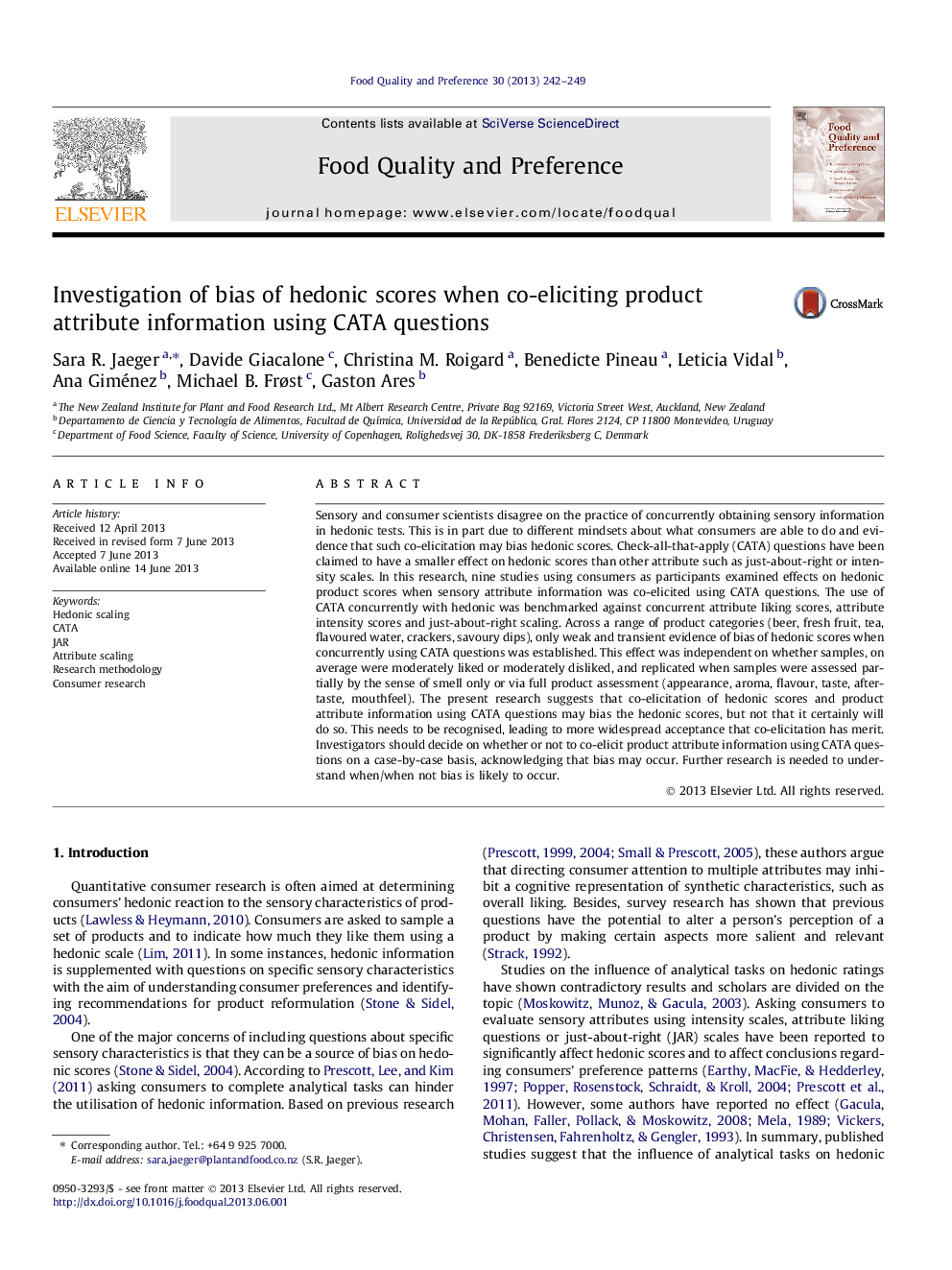| کد مقاله | کد نشریه | سال انتشار | مقاله انگلیسی | نسخه تمام متن |
|---|---|---|---|---|
| 4317250 | 1613166 | 2013 | 8 صفحه PDF | دانلود رایگان |

• When concurrently using CATA questions, hedonic scores were largely unaffected.
• This mirrors extant literature, where evidence of bias is inconsistently reported.
• Whether or not bias will occur may depend on product and testing factors.
Sensory and consumer scientists disagree on the practice of concurrently obtaining sensory information in hedonic tests. This is in part due to different mindsets about what consumers are able to do and evidence that such co-elicitation may bias hedonic scores. Check-all-that-apply (CATA) questions have been claimed to have a smaller effect on hedonic scores than other attribute such as just-about-right or intensity scales. In this research, nine studies using consumers as participants examined effects on hedonic product scores when sensory attribute information was co-elicited using CATA questions. The use of CATA concurrently with hedonic was benchmarked against concurrent attribute liking scores, attribute intensity scores and just-about-right scaling. Across a range of product categories (beer, fresh fruit, tea, flavoured water, crackers, savoury dips), only weak and transient evidence of bias of hedonic scores when concurrently using CATA questions was established. This effect was independent on whether samples, on average were moderately liked or moderately disliked, and replicated when samples were assessed partially by the sense of smell only or via full product assessment (appearance, aroma, flavour, taste, aftertaste, mouthfeel). The present research suggests that co-elicitation of hedonic scores and product attribute information using CATA questions may bias the hedonic scores, but not that it certainly will do so. This needs to be recognised, leading to more widespread acceptance that co-elicitation has merit. Investigators should decide on whether or not to co-elicit product attribute information using CATA questions on a case-by-case basis, acknowledging that bias may occur. Further research is needed to understand when/when not bias is likely to occur.
Journal: Food Quality and Preference - Volume 30, Issue 2, December 2013, Pages 242–249